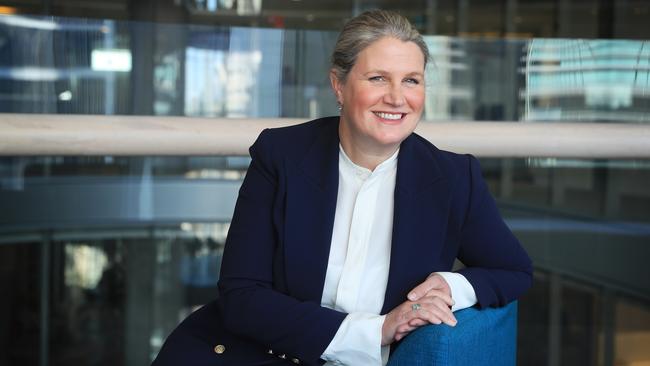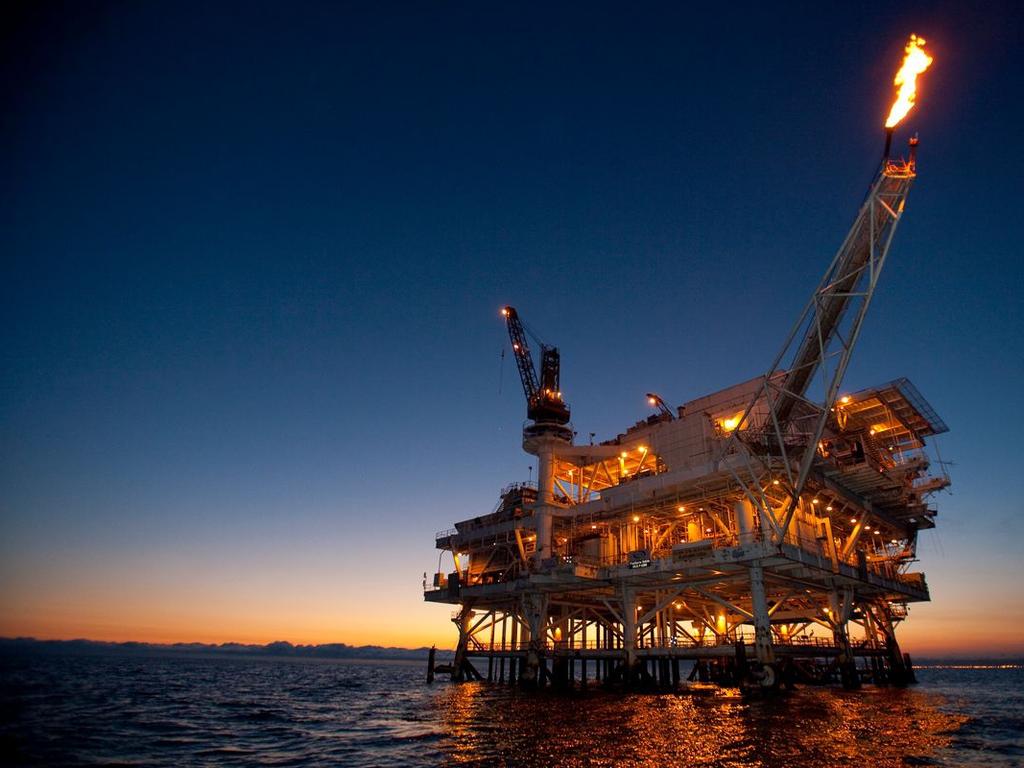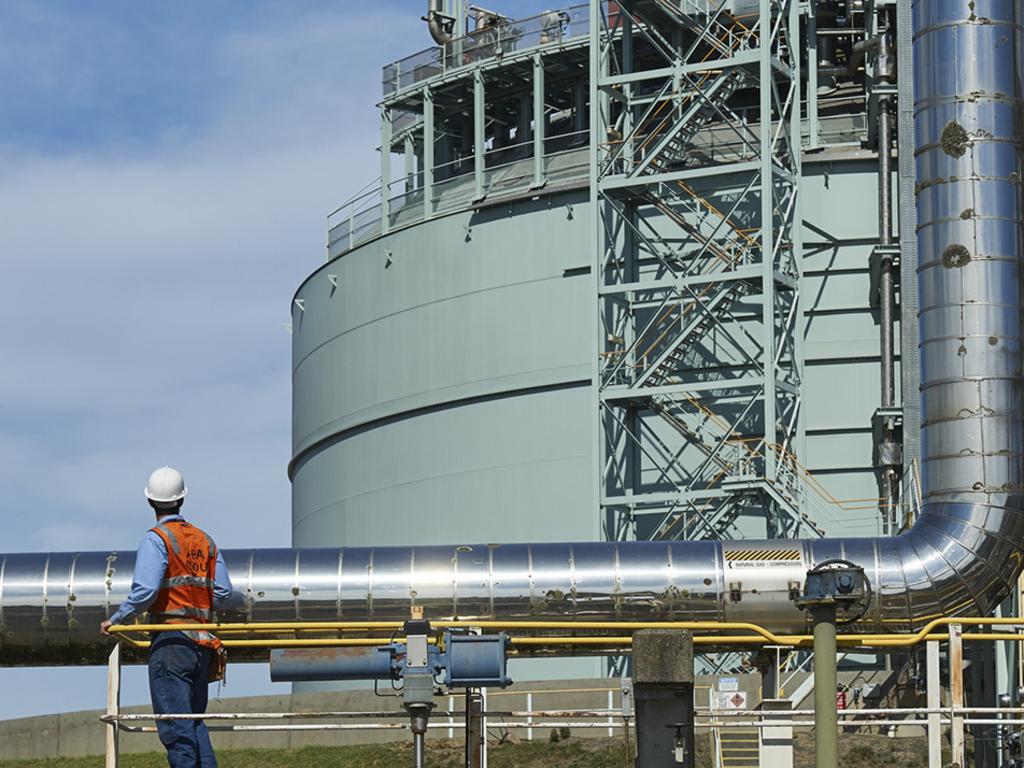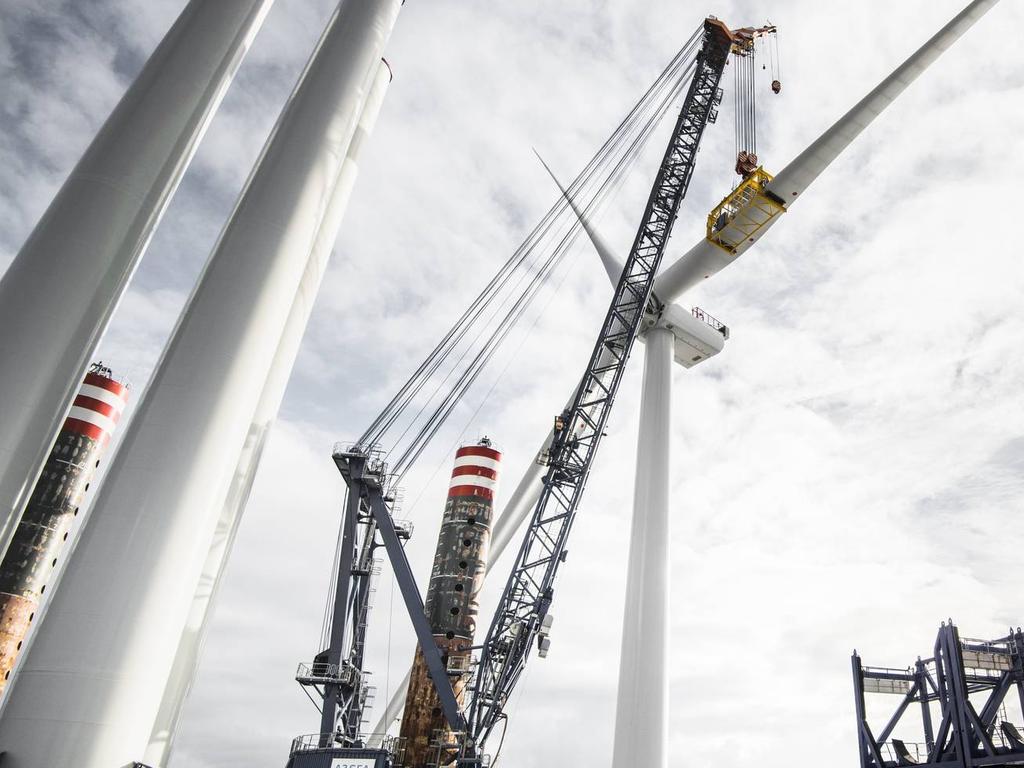Oil Search’s Beth White and the challenge of oil exploration in a net zero world
Oil Search faces a big climate test as it weighs whether to sanction a $US3bn ($3.8bn) Alaskan oil project.

It landed with a thud. And sent oil producers scrambling.
A landmark International Energy Agency report found no oil or gas fields should be opened up if the world was to reach net-zero emissions by 2050. Saudi Arabia’s energy minister compared the agency’s analysis as a sequel to Hollywood film “La La Land”, Russia warned crude prices could triple beyond $US200 a barrel while Greta Thunberg proclaimed it was the beginning of the end for oil.
For Oil Search, preparing to sanction a big oil project in Alaska’s North Slope, it was another “data point” – noted and taken seriously but not the end of fossil fuels as we know it.
“It’s just a scenario of what would need to happen to achieve an outcome,” says Beth White, the Oil Search executive responsible for developing a climate strategy in tune with a net zero world. “Most of the investors we speak to appreciate that we do scenario analysis. But really this is just another data point for us to consider. We have an aim to be net zero by 2050, so it’s certainly not something we’re shying away from or fearful of.”
At the very least the report from the IEA, a group created to safeguard oil-consuming countries’ interests, marked a turning point. Long-standing complaints from green groups over the energy industry’s inaction on climate change have jumped into the mainstream as shareholders, financiers and regulators tighten the environmental screw.
“It’s certainly dynamic and gathering pace,” White tells The Weekend Australian. “I view it as an opportunity – mostly. There’s no doubt the energy transition is here and the question is what’s the time frame, how is it going to happen and is it going to be an orderly or disorderly type of transition.”
Oil Search, already facing pressure from investors to swap out the Oil in its name, is undeterred by the climate frenzy which will be a major focus at next week’s APPEA oil industry conference in Perth.
White, a 14-year Oil Search veteran, was appointed to the newly created role of sustainability and technology head as part of a major corporate restructure last July laid out by chief executive Keiran Wulff following the biggest oil price crash seen in a generation.
The US-educated geologist, who also spent six years at Woodside Petroleum, took a first step on climate in November with a target for a 30 per cent cut in emissions intensity at its operated ventures by 2030.
By February it upped that ambition with a goal of net zero emissions by 2050.
Unlike some carbon emitters, Oil Search doesn’t claim to have all the answers yet. The initial focus is on cutting greenhouse gases at its existing Papua New Guinea gas operations, which includes the giant PNG LNG export plant, and its Alaska development known as Pikka.
Some of that will come through technology but Oil Search will also look at investing in renewable energy and carbon offsets along with a $US200m biomass project in PNG with 20 million trees to be planted by 2025.
For investors, however, just how it manages to navigate developing an entirely new oil project in Alaska stands as its biggest test.
Oil Search’s case is that Pikka is a “Paris-aligned” growth project, a reference to the climate pact which aims to keep temperatures below two degrees above pre-industrial levels with an aim of limiting rises to 1.5 degrees.
It argues Pikka, awaiting an investment decision in the last quarter of 2021, will emit greenhouse gas emissions some 75 per cent below the average of the North Slope, a region that’s been pumping oil since 1977 and once accounted for a quarter of all US production.
Still, critics question whether Oil Search, a big gas producer, investing in a major oil project runs against the climate tide while its emissions are being compared with older and dirtier developments.
“It increases oil versus gas in the mix for Oil Search at a time when other companies are trying to go the other way,” Credit Suisse analyst Saul Kavonic says. “Alaska would be towards the upper end of emissions compared with other conventional onshore projects seeking to take a final investment decision this year. But an iconoclastic move against the environmental, social and governance trend might pay dividends.”
But White says the project stacks up even amid a broader climate crackdown, citing testing of the development using Carbon Tracker data with both Pikka and its planned PNG LNG expansion consistent with the Paris agreement goals of staying below two degrees.
“There’s no doubt there’s increased scrutiny really on all oil and gas projects going forward and certainly those in the Arctic as well. But again the credentials of Pikka are quite good – it’s being built among existing infrastructure, we’ve focused very much on reducing the footprint of the project including directionally drilling wells from fewer well pads, looking at electrified rigs and a whole suite of opportunities to drive down the greenhouse gas intensity of that project.”
With US President Joe Biden halting oil leases in Alaska, more project challenges await, including trimming its 51 per cent share of Pikka and lining up its share of funding, which may require it to tap alternate sources of funding.
But Oil Search is banking on a low-cost, low-emissions approach to get the project over the line, with supplies to be delivered from Alaska at less than $US40 a barrel and a target of $US35 a barrel longer-term.
“Our aim is to drive that greenhouse gas intensity lower and drive down the break-even cost so we reduce any risk of it being a stranded asset in the future,” White says.
The company is also among Australian producers that will hand investors a non-binding advisory vote on its climate change report at its annual general meeting in 2022, following pressure from hedge fund billionaire and activist Chris Hohn.
White says demand for fossil fuels will remain for decades to come and Oil Search plans to be among producers delivering supplies to customers. And rebranding to soothe oil-averse investors does not appear a top priority.
“Pikka is a project being developed to meet the demand which under many forecasts is likely to still be there for some time. The priority is to get our projects, which are in the queue, off the line regardless of what we call ourselves. That’s where the priority is right now and I think we can evaluate any branding in due course.”






To join the conversation, please log in. Don't have an account? Register
Join the conversation, you are commenting as Logout